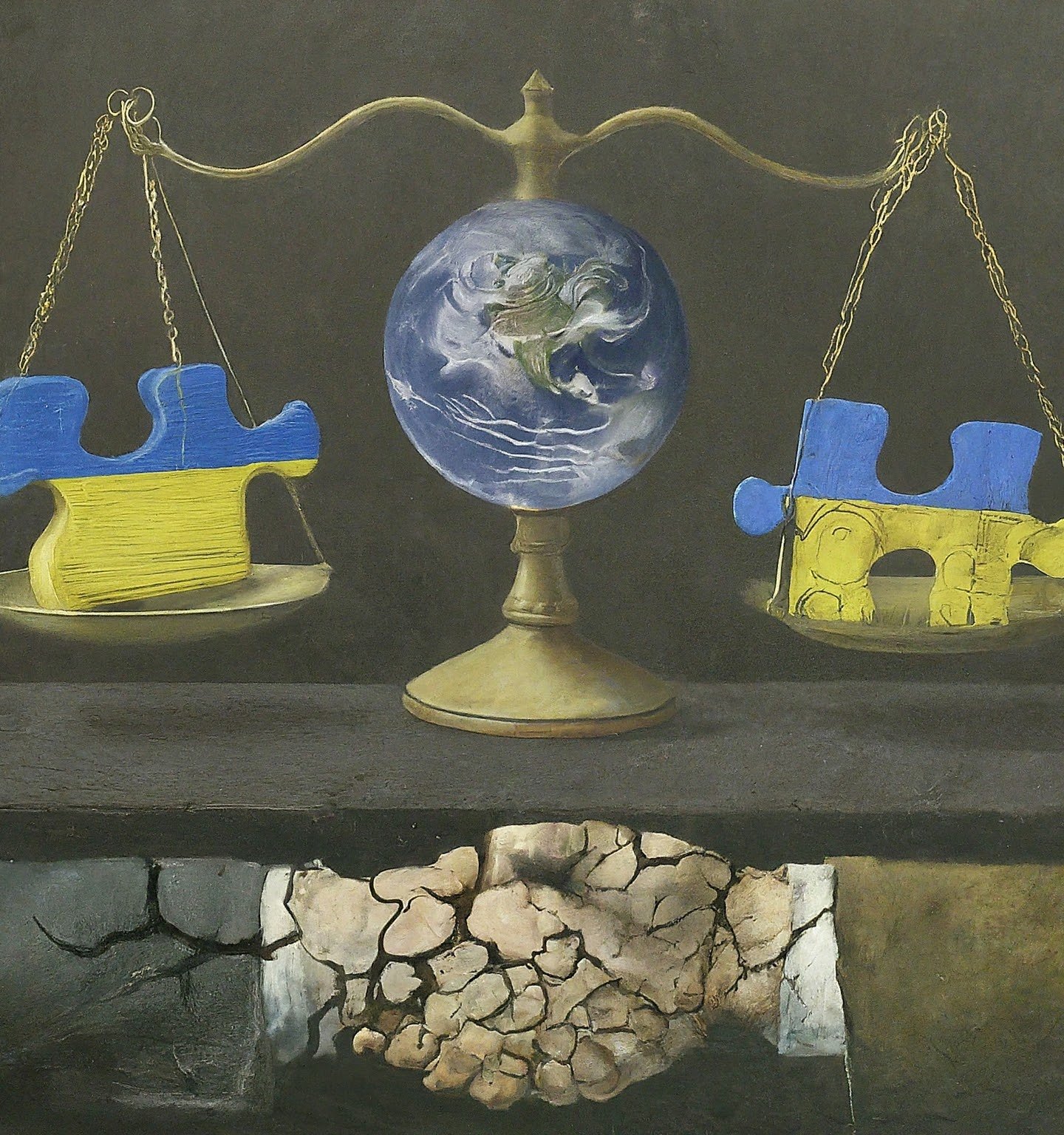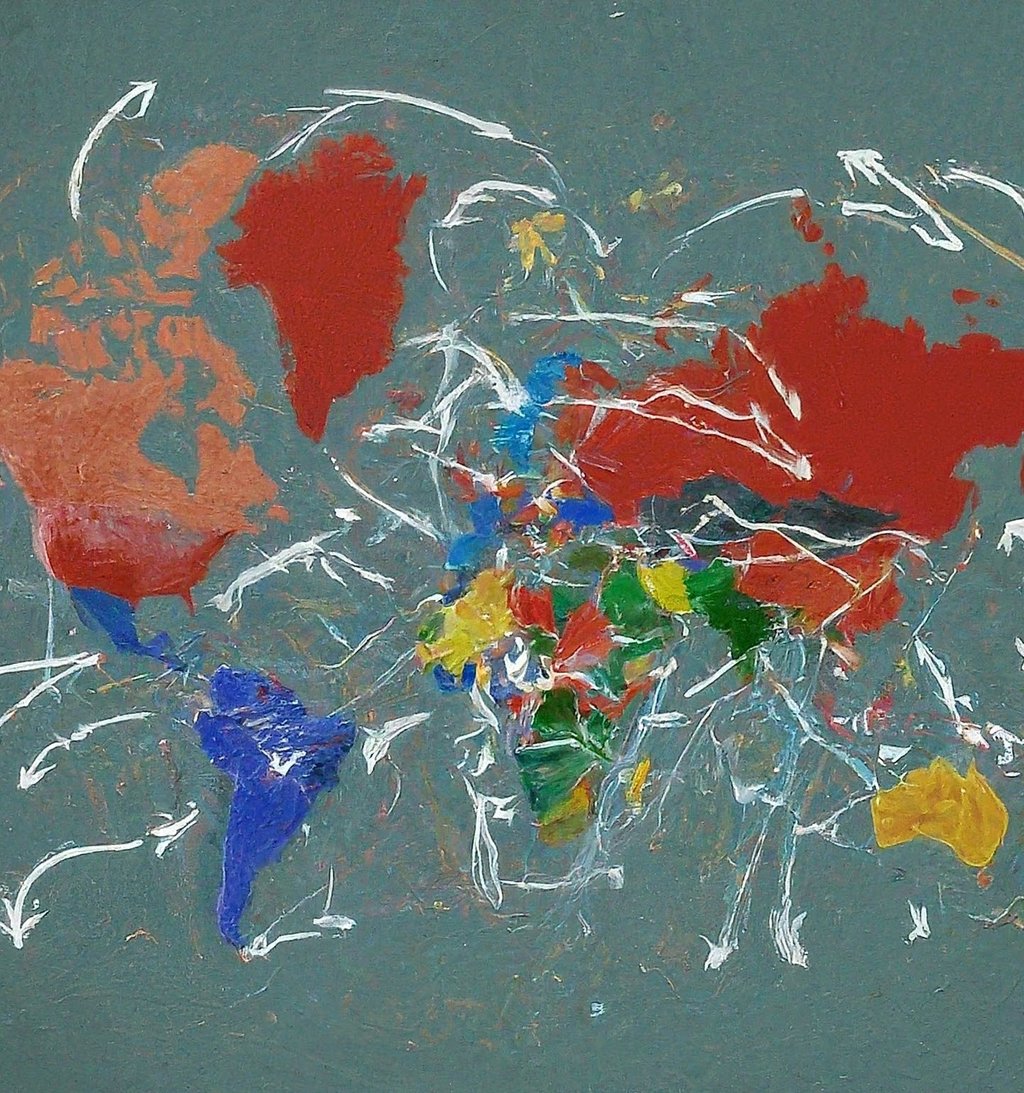Is the US the Loser of the Russia-Ukraine War?
THE WORLD ORDER
7/9/20243 min read


Diplomatic Hall
PIC: GEMINI AI


The Russia-Ukraine War has unfolded as a complex geopolitical event with ramifications extending beyond the immediate conflict zone. While the primary battlegrounds lie in Eastern Europe, the impacts reverberate globally, affecting economies, international relations, and the strategic calculus of many nations. Among the global actors, the United States has played a pivotal role, providing substantial support to Ukraine and leading a coalition of nations imposing sanctions on Russia. However, there is a growing argument that the US has not achieved its strategic objectives in this conflict. This evaluation necessitates a nuanced economic, political, and strategic analysis.
Economic Impact on Russia and Global Dynamics
Despite severe international sanctions, Russia's economy has shown surprising resilience. Reports indicate that Russia has not only weathered the sanctions but has also transitioned to a high-income economy as classified by the World Bank. The European Bank for Reconstruction and Development (EBRD) forecasts further growth, driven by massive state spending on military equipment and increased economic ties with non-Western nations such as China, India, and countries in Africa and the Middle East.
This economic resilience can be attributed to several factors, including high global energy prices, alternative trade routes, and a robust shadow fleet facilitating oil exports. Countries like India have significantly increased their imports of Russian oil, benefiting from lower prices and ensuring their energy security amidst global disruptions. The shift in trade dynamics has diminished the immediate economic leverage that Western sanctions were intended to exert, thereby complicating the financial front of the conflict for the US and its allies.
Geopolitical Realignments and the Global South
One of the most significant outcomes of the Russia-Ukraine War has been the geopolitical realignments, particularly among countries in the Global South. While the West has largely united in support of Ukraine, many countries in Asia, Africa, and Latin America have adopted more neutral or even supportive stances towards Russia. This divergence is rooted in historical contexts, economic dependencies, and strategic interests.
For many in the Global South, the war is not viewed in binary terms of good versus evil. Historical grievances, particularly those related to Western colonialism and military interventions, color their perspectives. There is also a pragmatic recognition of Russia's strategic importance as a trading partner and a counterbalance to Western dominance. The reluctance to fully align with Western sanctions reflects a broader desire to maintain autonomy in foreign policy and safeguard national interests in a multipolar world.
PIC: GEMINI AI
Who We Are:
The Economic Nations champions global unity through economic collaboration, focusing on sustainable growth, reducing inequalities, and enhancing global relationships for mutual prosperity and peace.
_______________________________________
Strategic and Political Dimensions
Strategically, the US has reinforced NATO and galvanized Western alliances. The war has prompted several European nations to bolster their defense budgets and reconsider their energy dependencies, leading to a more robust and united Western front. However, this unity comes at a cost. The prolonged conflict and the sanctions regime have contributed to global economic instability, including soaring energy prices and supply chain disruptions. These challenges have exacerbated inflationary pressures in the US and Europe, straining economies and political systems.
Moreover, the war has highlighted the limitations of US influence in a multipolar world. While the US has led efforts to isolate Russia diplomatically and economically, the limited success in swaying the Global South underscores a significant shift in global power dynamics. Countries like China and India have leveraged the situation to their advantage, deepening their ties with Russia and enhancing their international standing.
The Role of Diplomacy and Future Prospects
Diplomatically, the US faces the challenge of navigating a complex landscape where traditional alliances are tested, and new partnerships are essential. India's role in the G20 Summit exemplifies a shift towards inclusive diplomacy that seeks to represent the interests of the Global South. The inclusion of the African Union as a permanent member of the G20 and the push for reforms at global financial institutions signals a move towards a more representative global governance structure.
The future of the Russia-Ukraine War and its broader implications remain uncertain. The US's long-term strategic goals will likely focus on maintaining the unity of its alliances, mitigating global economic disruptions, and addressing the underlying causes of geopolitical instability. While the US may not emerge as a clear "winner," its ability to adapt to changing global dynamics and foster inclusive diplomatic initiatives will be crucial.
Conclusion
In conclusion, the characterization of the US as a "loser" in the Russia-Ukraine War is an oversimplification. The conflict has underscored the resilience of the Russian economy, the strategic realignments in the Global South, and the complexities of modern geopolitical competition. While the US faces significant challenges, it also has opportunities to reinforce alliances, promote inclusive diplomacy, and adapt to a multipolar world. The outcomes of the war will shape global politics for years to come, and the US's response will be pivotal in navigating this evolving landscape.
Contacts
enquiry@economicnations.org
(xx) 98-11-937-xxx (On verification)
